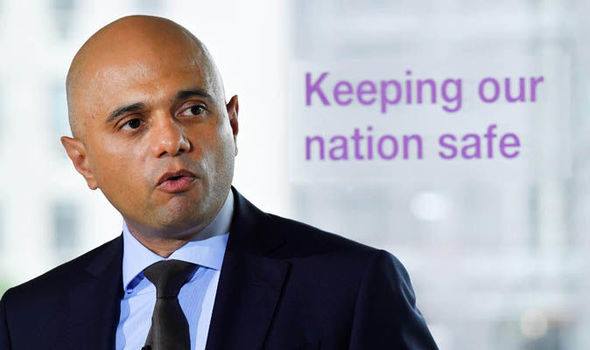So, some of you will have heard rumours about Sajid Javid and his shenanigans as a top banker leading up to the global banking crisis of 2007/8. Rebecca Long-Bailey touched on it in a recent election special on the BBC when she laid into Conservative MP Rishi Sunak after he attempted to accuse the Labour Party of crashing the UK economy. Rebecca let him have it with both barrels and reminded him how his Chancellor, Sajid Javid, “was working at Deutsche Bank , selling the very derivatives that caused the banking crash in the first place” I’ve also seen a number of subsequent posts making some shocking claims about the chancellor’s behaviour, during his time as a banker, including one claiming that he took a £3Million bonus via a Cayman Island account in order to avoid paying tax.
Given the level of interest and not wanting to be responsible for sharing anything that can’t be substantiated, I decided it might be worth doing a little digging around to see if we can get to the facts behind the claims. So, here goes…
· Prior to becoming a politician in 2010, Javid had an 18-year career in banking.
· Javid started in banking in 1991 and gradually built up his annual salary to seven figures by 2000.
· Javid joined Chase Manhattan Bank in New York City immediately after graduation and became their vice president. He then returned to London in 1997 and joined Deutsche Bank as a director in 2000. He became Managing Director at Deutsche Bank in 2004 and global head of Emerging Markets Structuring in 2005.
· In 2007, he relocated to Singapore as head of Deutsche Bank’s credit trading, equity convertibles, commodities and private equity businesses in Asia and was appointed a board member of Deutsche Bank International Limited.
· As MD, Sajid Javid would have taken responsibility for global credit trading in Asia ex-Japan, based in Singapore.
· When he became an MP in 2009, the Evening Standard said Javid took a 98% pay cut. As MPs are on £67k, this suggest he could have been making around £3.4m a year as Managing Director of Deutsche Bank.
· Some credit head hunters claimed that their 2006 pay survey found that MDs at tier 1 houses were earning salaries of £130k plus bonuses of £1.5m- £2m but if he was based in Singapore then Javid would have received an additional ex-pat package of around £200k, making his total salary more like £2.3m [$3.6m].
· In 2014, the Daily Mail accused Javid of channelling some of this money through a tax haven. They claimed that an investigation by The Mail on Sunday had established that Javid was among a group executives and senior staff at Deutsche Bank who were paid bonuses worth at least £50,000 each (likely to be a lot higher for Javid as he was a senior executive) via shares in a Cayman Islands company in order to avoid paying tax.
· It is suspected that Javid was working on the controversial products that were behind the financial crisis during the six years he spent at Deutsche Bank in London.
· A former colleague of Javid’s said he was astonished at how Javid had been spinning his banking career as if he were some sort of a sober investment banker and revealed that Javid was actually ‘a structured credit trader’ and that he was in fact at the heart of the business that precipitated the financial crisis.
· An ex Deutsche board member reported that shortly before the crisis “All the profit & losses was taken upfront and bonuses paid on it,”
· Earlier this year, in August, Johns McDonnell accused Javid of “some of the worst excesses of the casino economy” during his time as a banker and said that Javid had questions to answer over a tax avoidance scheme used by Deutsche Bank and that he should publish his tax returns. In a letter to the PM, McDonnell said that Javid had been selling collateralised debt obligations (CDOs), a complex financial product largely attributed with playing a key role in the 2008 financial crash. “It will not be lost on those that have suffered the consequences of the last nine years of austerity following the 2008 financial crisis that the newly appointed chancellor profited from the greed that contributed to it,”
· McDonnell also points out how a US Senate committee had found that Deutsche Bank had in fact caused “material damage to ordinary people and the wider global economy”, during the time Javid was actually on the board at Deutsche Bank.
Koser Saeed







